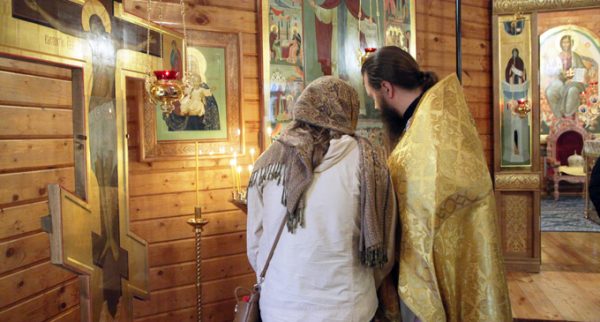You should understand why you are confessing and what you want from confession.
Moreover, it is essential to read literature about confession to understand what is considered a sin in Orthodoxy and how sins affect a person’s soul. There is a lot of literature on these issues.
Next, you should meet with a priest to schedule your first confession.
Usually, if a person takes repentance seriously, the confession can take a long time. Therefore, again, it is necessary to schedule the confession in advance to ensure the priest has enough time for you.

Archpriest Igor Fomin
The day before, in order to prepare for the Sacrament, you should pray and say something like, “Lord, open my mind and spiritual eyes so that I can remember all the sins I have committed in my life.” And then try to remember your sins and write them down on a sheet of paper. Your sheet should include sinful actions and thoughts.
You may take that sheet to confession with you, so you don’t forget anything. Then go at the appointed time to confess your sins with honesty, openness, and a contrite heart. And, most importantly, without excuses. There is no use saying, “I committed this sin because I had no other choice.” The phrase “I committed this sin” would be enough. If the priest asks you questions during confession, you will need to describe your sinful state in more detail.
At the end of the Sacrament, a priest will read the prayer of absolution to absolve you of your sins while he covers your head with his epitrachelion. Then you will kiss the cross and the Gospel (a priest will tell you when to do it). After confession, the priest will usually give advice. It is important to take note of his advice and remember it. Now, you should try to avoid committing the confessed sins again and take care of yourself.

















